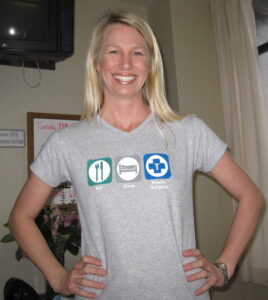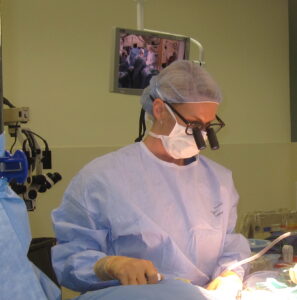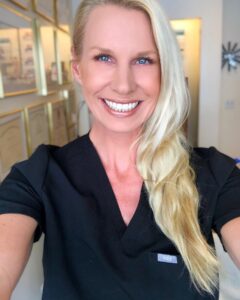5 Traits of a Successful Plastic Surgeon (Plus My Two Cents)

Back in the pre-COVID days when I didn’t have to pull my mask up until surgery was beginning and I could smile at my patient as they went off to sleep…
I came across this article by a colleague I don’t know personally. It really spoke to me as it summarized the traits I instinctively know that most Plastic Surgeons possess inherently. However, not everyone knows what it takes to become certified and practice successfully as a Board Certified Plastic Surgeon (certified by the American Board of Plastic Surgery) – not some other bogus “cosmetic board” that any non-surgeon or even non-MD can join for a fee.
And what is takes to be successful as a Surgeon, a person and a human being.
[See text from the article below, with my comments and reflections, for interest.]

I am honored to be an active member of several professional Plastic Surgery societies and to serve on committees and leadership roles, educating my colleagues at our national society meetings.
5 TRAITS OF A SUCCESSFUL PLASTIC SURGEON
“The journey to becoming a successful Plastic Surgeon is a long one, and I believe that it does not end at the conclusion of formal training. The path to success as a surgeon is one that never ends. We never achieve perfection—we simply keep practicing and improving. One of the best aspects of being a Plastic Surgeon is practicing diligently to do the best job possible for our patients, with compassion and humility. It’s truly the route to success.
After a few weeks on a surgical rotation, a Medical Student told the wise, experienced Attending Surgeon that he had identified several traits that made her a good surgeon. But he couldn’t determine which one was the most important.
The medical student stated that the first thing that came to mind was the Surgeon’s physical stamina. Getting up at 4:30 a.m. every day, seeing patients in the hospital before surgery, standing all day during surgery, and then seeing patients at the end of the day was exhausting. The Medical Student expressed that without physical stamina and toughness, there is no way someone could be a Surgeon.
But despite being tough and having good stamina, a Plastic Surgeon won’t be successful without strong manual dexterity, the student said. So much of surgery depends on the hands of the Surgeon to perform the surgery accurately and precisely. The student theorized that the surgeon’s hands must be the most important.
Even so, skilled hands don’t help discern the complicated physiology and anatomy of the human body, the student realized. Without an excellent recall of facts, the ability to remember and understand complicated 3D anatomy, and the ability to learn and comprehend physiology, the best hands in the world won’t be able to do their job. So maybe it’s not physical stamina or excellent hands that make a good Surgeon; maybe it’s the brain.
As the student concluded that the brain was the most important trait of a successful surgeon, the wise Attending Surgeon continued to operate and listen. After several moments, the student asked if the surgeon agreed that the brain is the most important component. The wise surgeon replied that while all those aspects are important, only one thing truly matters: the Surgeon’s HEART.
If the Surgeon has a good heart and cares for their patients, loves them, and has compassion for them, then they will devote the time and energy needed to understand the complicated topics. If the Surgeon has a good heart, then they will devote the time to develop manual dexterity. The Surgeon’s loving heart will also push them to develop the toughness necessary to withstand the difficulties of surgery. If the Surgeon has a “good heart,” then they will find success.
{YES! “Do what you love, and love what you do” summarizes how I feel about Plastic Surgery. I care for my patients as if they were my own family or a dear friend. I truly put my heart and soul into every single patient I meet, whether I operate on them or not, no matter how big or small the procedure may be.}
THE SUCCESSFUL PLASTIC SURGEON CHECKLIST
1. A DESIRE AND HUNGER TO DO AND BE YOUR BEST
This begins in Medical School, develops in Residency, and continues throughout the career of the Surgeon. This attitude is what drove the Surgeon to stay an extra 30 minutes studying in the library as a student. It’s what drives the Surgeon to wake up early each day to study new techniques and research. It’s what drives the Surgeon to closely examine the before and after photos of patients to see opportunities for improvement.
2. THE HUMILITY TO REALIZE THAT NO PLASTIC SURGEON WILL EVER BE PERFECT AND THERE IS ALWAYS ROOM FOR IMPROVEMENT
Improvement is part of the practice of medicine and, as Surgeons, there is always room to improve our techniques and results. This can be discouraging. However, if Surgeons can adopt the attitude that every opportunity—whether positive or negative—is a chance to learn and get better, then the process is much less stressful. It even becomes enjoyable.
{Most Plastic Surgeons are perfectionists. Perfection is never achievable in surgery, unfortunately. Being a perfectionist is good for our patients, but is a challenge as a Surgeon. However, we must critically evaluate our results once healing is complete – which can take a year or more about Plastic Surgery – and discuss “accepting acceptable results” or consider a minor or major revision if both Surgeon and patient feel it is worthwhile. Planning a surgical revision isn’t a failure – instead, it’s an opportunity to “tweak” the results and strive for even better aesthetics, improved symmetry or nicer scars.}

My Microsurgery Fellowship year at The Buncke Clinic in San Francisco: “Eat – Sleep – Plastic Surgery”
3. AN ENJOYMENT OF PEOPLE WITH ALL OUR DIFFERENT OPINIONS, PHILOSOPHIES, PRIORITIES, BACKGROUNDS, ETHNICITIES, ETC., AND THE ABILITY TO RELATE AND COMMUNICATE WITH THEM
People are the best part of our jobs, but they can also be some of the most challenging. Why? Because each of us is unique with our own opinions, experiences, and desires. This variety make life enjoyable. However, it also causes stress. Learning to enjoy this variety helps make for a successful surgical career.
{Everyone in life has something to teach us. Every patient, every colleague, every Nurse, Scrub Tech and member of our clinical team. Keep your eyes and ears open. Stop talking and LISTEN. People want to share their stories. They want to be heard and to answer questions. We are so lucky to be able to communicate with others who are not just like us every day. Not a day goes by that I don’t learn at least 10 new things when I leave home for “work”! (my calling).}

Reconstructive Microsurgery especially takes a physical toll on a Surgeon’s body. Wearing heavy loupes, often bending over in unnatural positions for hours to perform dissection of tiny blood vessels and microvascular anastomoses – you really need to be fit and strong to avoid injuries as a surgeon.
4. THE NECESSARY TECHNICAL AND PHYSICAL ABILITIES
Surgery can be challenging physically and requires some technical abilities that other areas in medicine may not require. For example, physical ailments could preclude a Surgeon from being able to perform the technical aspects of the job. Standing all day, most days, can be a challenge for most people and may make the job less enjoyable than it would be otherwise.
{I truly believe that keeping fit and exercising nearly every day is vital to avoid workplace injuries in all professions, but especially as a Plastic Surgeon and Microsurgeon. I counsel my patients that surgery is a traumatic injury, and the best way they can prepare for surgery is to get moving! By asking more of their body and making their heart and other skeletal muscles, their lungs, liver and kidneys work harder than they need to, they are essentially “in training” for surgery. The same goes for their surgeon – I should never be expending my maximum strength or energy at work – that’s how you get injured.}

My original San Francisco Plastic Surgery Center O.R. Team! We successfully oversaw construction of a new operating room and obtained AAAASF accreditation immediately after opening our doors!
5. BEING AN EFFECTIVE LEADER
Being an effective leader is an underappreciated aspect of being a successful Plastic Surgeon. To be an effective Leader, one must be able to develop a vision of how the Surgeon would like to have the patients receive care. The Plastic Surgeon must communicate that vision to the different team members. Most Surgeons must then help with the execution of this plan, which can be challenging. Learning to delegate and avoid micromanagement is critically important.
In addition, an effective Leader understands that the complaints always “go up” the chain of command and never “go down” or even laterally. This is especially true for younger Surgeons who might relate more to the Nursing or Clinical staff. It can be lonely at the top, but the team Leader should never complain to colleagues on the Nursing team, Anesthesia team, etc. As good as “getting something off your chest” feels in the moment, it’s always counterproductive in the end. If professional conduct standards aren’t followed closely, issues can arise.
Finally, good Leaders must know that the process begins with them. If they’re not taking care of their own bodies or emotionally and physically well, then it will be difficult for them to perform at the highest levels. Remember the saying, “Physician, heal thyself!”
SUMMING IT UP
In conclusion, Surgeons that aren’t achieving the degree of success or satisfaction that they desire should evaluate their lives and practices in each of these areas to see if there are opportunities for improvement. Remember: Life is short and you deserve the best—you just need to choose to live your life accordingly.”
Thank you to my colleague P. Daniel Ward M.D. for sharing his thoughts. I completely agree!



